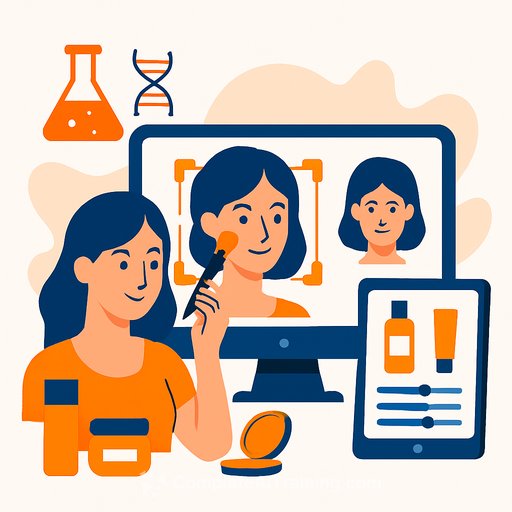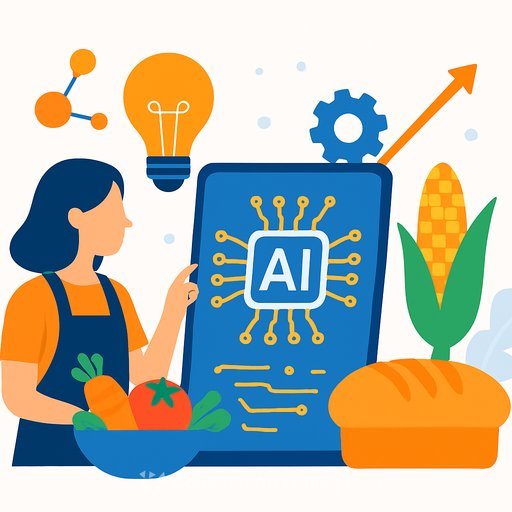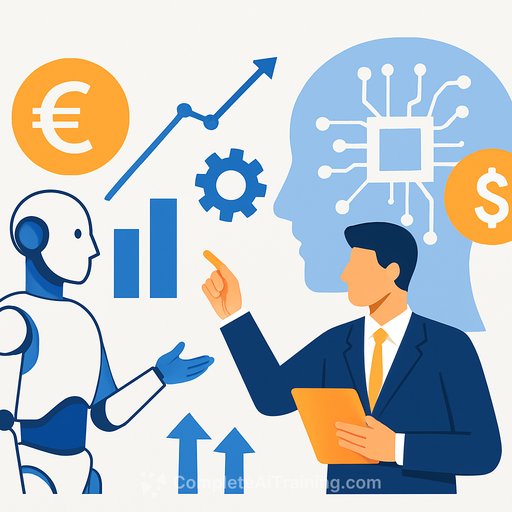Expert Insights: Digital Technologies Driving Cosmetic Product Development
Digital tools and platforms are reshaping how cosmetic products are developed, tested, and delivered. Beyond AI, innovations include connected devices, biotech interfaces, ingredient development platforms, and user-centric ecosystems. These technologies enable brands to create more intelligent, responsive, and personalized beauty solutions.
Real-time diagnostics, conversational AI, predictive analytics, and smart packaging are converging to break down barriers between R&D, marketing, and consumer engagement. This integration transforms the entire cosmetic value chain, allowing products to evolve based on user data and environmental inputs.
AI-Driven Molecular Design and Adaptive Cosmetics
AI is increasingly central in cosmetic research, especially in creating peptides, bioferments, and microbiome actives. Deep learning models help screen, simulate, and generate novel molecules with predicted efficacy, reducing reliance on trial-and-error.
Companies are combining large language models with multi-omics data to understand mechanisms behind skin aging, inflammation, and barrier dysfunction. This biological insight guides the design of precision ingredients.
Looking forward, AI systems will grow more autonomous, reasoning across biological, chemical, and clinical data to design and refine actives. Integrating real-world phenotype data from skin sensors and consumer trials will enable truly adaptive cosmetics that evolve with individual biology and lifestyle.
Conversational AI: Connecting Product Discovery to Repeat Purchase
Conversational AI is becoming the link across the entire product lifecycle. Many brands lack meaningful first-party data, especially about how consumers discover products. Conversational interfaces can naturally surface details about usage, environment changes, and feedback.
By tracking product use and gathering consumer insights over time, these systems feed valuable data back into R&D. Advanced generative AI can adapt advice in real-time, providing personalized guidance that feels like a knowledgeable assistant rather than marketing.
This continuous feedback loop merges discovery, trial, feedback, and repurchase into one intelligent system—strengthening both products and customer relationships.
Enhancing Delivery Through Tech-Formula Integration
Brands are now integrating delivery-enhancing technologies directly into packaging to improve ingredient efficacy without increasing formula complexity. Smart packaging may combine phototherapy, microcurrent, pulsed electromagnetic fields (PEMF), or ultrasonic functions with skincare formulas.
These tech-formula synergies improve bioavailability, reduce inflammation, and stimulate collagen, all while maintaining a seamless user experience. Miniaturized components like LED therapy and microcurrent devices can be embedded into packaging elements such as jar caps or droppers.
This approach opens new product claims, improves consumer compliance, and creates stronger user engagement without adding extra application steps.
AI-Driven Product Lifecycle Management
Product lifecycle management (PLM) platforms are increasingly integrating AI, especially in formulation and regulatory compliance. This helps teams handle growing product complexity, global regulatory differences, and faster innovation demands.
AI-powered PLM ecosystems enable cross-functional collaboration, aligning formulation, regulatory, and marketing workflows. Leveraging internal R&D data alongside public databases improves formulation agility and sustainability.
Generative AI modules can generate base formulas based on constraints like ingredient restrictions, regulations, or marketing claims, then assist with reformulation by adjusting priorities such as cost or innovation. This reduces errors, speeds up development, and cuts lab waste.
AI Scent Profiling for Hyper-Personalization
Personalization remains a key trend in cosmetics, with consumers seeking products that reflect their preferences and style. AI scent profiling uses algorithms, machine learning, and psychographic data to simulate human-like fragrance discovery.
These systems match scents to personality types, needs, and lifestyle patterns, allowing brands to offer interactive and personalized fragrance journeys that boost conversion and loyalty. Staff can also use these tools to provide faster, more accurate recommendations in stores.
Looking ahead, AI and big data will be essential for collecting consumer insights, predicting market trends, and supporting regionally and culturally relevant customization.
Plant-Based Exosome Platforms and Biological Precision
Exosome-based ingredients offer a new way to deliver targeted skin benefits by interacting directly with biological pathways. Platforms harvesting functional exosomes from plant cell cultures provide sustainable, customizable bioactives.
These exosomes can activate key epigenetic mechanisms to support skin adaptation, repair, and regeneration. Advances in in vitro testing, omics analysis, and imaging enable precise measurement of ingredient effects on cellular pathways.
Moving beyond traditional categorizations like skin type or age, this biology-driven design focuses on measurable cellular responses to create actives with visible results.
Integrating Science and Empathy Through AI
AI is shifting beauty care from reactive to predictive, considering biology, environment, and behavior for personalized routines. Emotion-aware, phygital experiences combine scientific insights with empathy, addressing consumer demands for transparency and relevance.
Real-time AI analyzes skin condition, environmental factors, hormonal shifts, and emotional states to deliver adaptive, anticipatory care. This data-driven approach helps brands identify product gaps, develop inclusive solutions, and accelerate innovation.
By blending diagnostics with interactive education and personalized recommendations, beauty tech creates holistic, seamless experiences that evolve with each user.
Conclusion
Emerging technologies—from AI and predictive diagnostics to smart packaging and ingredient platforms—are redefining cosmetic product development. These advances enable more intelligent, personalized, and responsive solutions that align closely with individual biology and behavior, offering product developers new paths to innovation and consumer engagement.
Your membership also unlocks:






